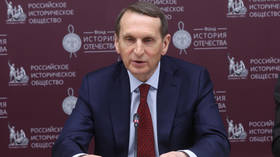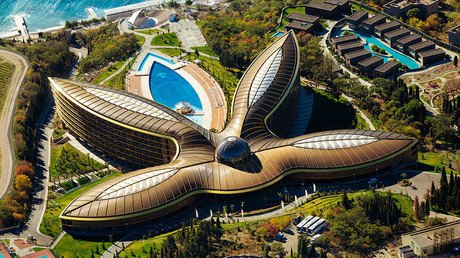Protests over citizenship law in India prove liberal elites only like democracy if they agree with the results
Protests in India over a controversial citizenship amendment law have curiously exposed the duplicity of liberals when it comes to their commitment to democracy.
Left-backed student unions and Muslim groups have been up in arms over a law that they perceive to be “anti-Muslim.” Backing up this protest movement, liberal Indians have revealed their cards.
For the youth to resist the charms of “revolution” — to be angry without a cause and bask in the romance and idealism of protests is fine. Such a phenomenon is common across the world — and examples abound in India’s own past. Pragmatism is usually a post-facto realization for the young.
As British conservative thinker, polymath and philosopher Roger Scruton said of the 1968 student agitation in Paris, an event that shaped his political thinking: “What I saw was an unruly mob of self-indulgent middle-class hooligans” uttering “ludicrous Marxist gobbledegook.”
Sir Roger died on Sunday, but he would have taken a forgiving view of student activism: Reason will dawn on them.
Also on rt.com Kerala becomes the first state to challenge India’s new citizenship law in Supreme CourtIn contrast, liberal anger against Modi is cynical. It is politics by proxy. Led by the power brokers and elites who had been at the heart of India’s power structure for decades since Independence but now have been cast aside.
As author Pankaj Mishra describes in Bloomberg: “Deeply united by caste (uniformly upper), class (upper to middle), education (mostly Western), marriage and profession, this elite was originally entrusted with the task of modernizing India’s peasant society by Jawaharlal Nehru… Then, under the patronage of his daughter Indira Gandhi, the community came to accumulate more cultural and intellectual capital than any self-interested group in the country.”
Where local becomes global
This group now feels threatened by the rise of Narendra Modi. They feel disempowered by the way a Modi-led BJP government has ended their grip over India’s corridors of power. A blowback was inevitable, and it has come in the form of questioning the very tenets of India’s representative democracy that elected Modi. The protests provide a useful context.
This is where the phenomenon becomes global. The condition in India mirrors what’s happening in the West where Donald Trump’s rise in the US through a democratic process has been called the “end of liberal democracy.”
Whether in India, the US or the UK that voted for Brexit, this elite derision against popular opinion stems from a liberal disaffection with democracy whenever the electoral pendulum swings away from them.
The “liberals” believe in the legitimacy of democracy as long as it throws up results that they like. If not, the unwashed masses, middle class voters or working classes are castigated as “intolerant fools,” “white supremacists,” “racists” — or “bhakts,” “Hindutva goons,” and “xenophobes” who are taking India back to the “dark age.”
Other shores
In the US, where Trump is facing a doomed impeachment move brought by desperate Democrats, we frequently hear comments about “Trump’s base.”
Who are these people? Are they not hardworking, ordinary Americans trying to get on with their lives and believe in exercising their franchise? To call them bigots or racists is to be condescending of their choices. This “call-out” culture that dominates American Leftist identity politics and alienates ordinary people from the insufferable “woke” generation, is now visible in India too. People who voted against the recommendations of self-righteous liberals are now at the receiving end of their ire.
Also on rt.com New Indian citizenship law fulfills wishes of Mahatma Gandhi & other freedom fighters – PM ModiIn the Hindustan Times, historian Ramachandra Guha, a vocal critic of BJP, writes: “Had not the abolition of Article 370… already done a great deal to satisfy the BJP’s hardline Hindutva base? Had not the Supreme Court’s verdict in the Ayodhya dispute… satisfied them further? Is the greed of the base really so insatiable that this third bone had to be thrown their way so soon after the other two?”
It is instructive to note the language that he uses to describe those who voted for BJP and Modi. “Greedy base” who need more “bones” to “satiate” their hunger. This use of animal metaphors to describe ordinary people whose political views are different from theirs, typifies the arrogance and intolerance of this tribe.
We see the same rhetoric employed by a leader of the Congress party, an outfit that symbolizes dynasticism and the old elites’ incestuous grip over power. Shashi Tharoor writes in a magazine that “world’s fastest-growing free-market liberal democracy – seems to be giving way to a violent, intolerant, illiberal autocracy.”
It is difficult to understand how India, the world’s largest representative democracy that concluded a massive electoral exercise in 2019, has turned overnight into an “autocracy.” The BJP, that forms the federal government at the Center, has suffered recent reverses in state elections to further underline the vibrancy of India’s democracy.
If liberal democracies around the world are facing a threat, it is not from populist leaders but “liberals” themselves who are unable to come to terms with reality. A little humility may help.
Think your friends would be interested? Share this story!
The statements, views and opinions expressed in this column are solely those of the author and do not necessarily represent those of RT.















